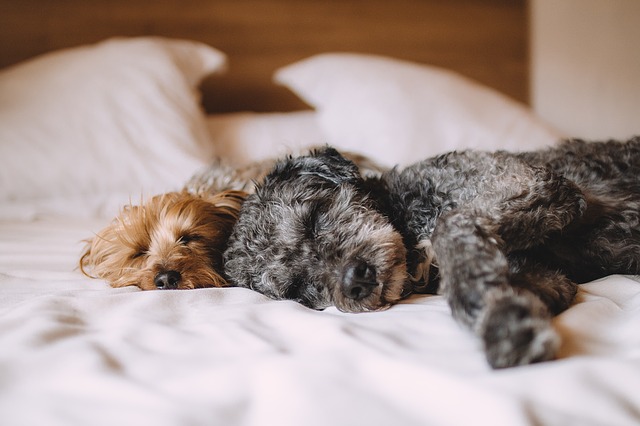You may be a little nervous about bringing home a new puppy. There is a lot to think about and plan for. Here are some great tips that helped me with my first puppy. With a little planning and lots of love, you and your new bundle will soon be comfortable with each other.
Holding a Puppy
As with a baby, you handle a puppy very carefully to support the fragile limbs and spine. Don’t pick up your puppy if you can avoid it. If you must, follow these steps carefully:
- Place one hand under your puppy’s chest while cradling his little bottom in your other hand. Gently lift your hands together.
- If your dog is larger, or even for a small adult dog, wrap both your arms around your puppy’s legs, draw him toward your chest, and lift up.
Items You Will Need
Here is a list of helpful items to have ready before bringing your new dog home.
- High-quality pet food
- A stainless steel water and food bowl
- Gentle dog shampoo
- Nail clippers
- Safe chew toys to ease teething
- Dog tags with your puppy’s name and contact information (your name, phone, vet’s name and phone)
- A dog collar and leash. I recommend a 6 ft nylon leash with a breakaway collar with clips that unsnap in case your puppy gets caught on something.
- Tick, flea, and parasite remedies
- Dog treats
- Stain remover for “accidents”
- Comb or brush suited to your puppy’s fur. Ask your vet or breeder if you are not sure which kind is appropriate
- A kennel or crate that is airline approved and large enough for your dog to grow into. It will serve as a little “home away from home”. It is useful when traveling and can provide a secure place during stressful times.

First Days at Home
Ideally, you can bring your puppy home to a quiet house. Try to minimize the commotion from people outside the family until a daily routine is established.
- First things first. Before bringing your puppy inside, take him to his designated potty area in your yard to spend a few minutes. If he happens to go, praise and rub him. Take him to this speot every time you take him out.
- Next, take him to the room with his kennel. Here you can have a controlled “den” for several days. Put a few chew toys and some bedding in the crate with the door left open. Line the surrounding area with newspapers. This way he can explore around the room. Change his bedding if it gets soiled or chewed on.
- Watch and enjoy your puppy while he is getting used to his new home. He will begin to form a sense of “pack” with you as leader of his pack.
Extra Advice
You will treat a puppy (up to 16 weeks) in the same way you would a baby — giving constant supervision, gentle handling and lots of patience. The way you treat your dog is vital to healthly socialization. Here are some tips:
- Watch for signs (circling or sniffing) that he has to go to the bathroom. Take him immediately to the designated spot.
- Find a formula designed specifically for puppies. He needs highly digestible food just like a baby.
- He won’t have any bladder control and will need to go often — after eating, drinking, playing or sleeping. Plan on cleaning up about 3 times an hour.
- Don’t punish a young puppy for having an accident. It is counter-productive to scold or rub his nose in the waste. This could create odd habits or hiding, instead of proper potty training.
- Praise and reinforce any time your puppy does his job outside.
- Spend plenty of time interacting with your new puppy and don’t leave him unsupervised.
- Feed your puppy a formula designed for puppies. Like a baby, he needs nutritious, highly digestible food.
Remember to learn from friends and family that have raised dogs successfully. Nothing replaces experience.

